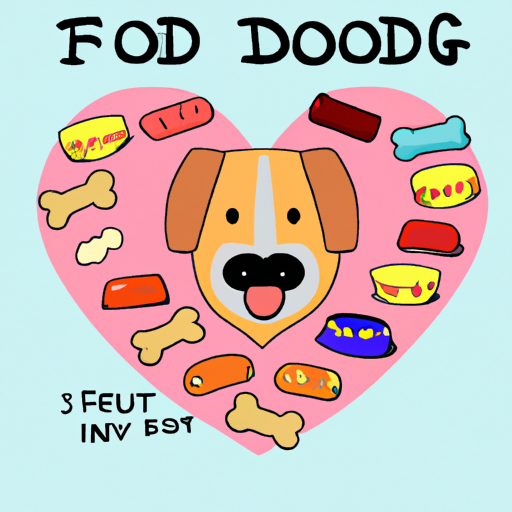As a caregiver to your furry friend, you must have found yourself wondering – ‘Can my dog eat this?’ This guide will help you answer that question with a focus on foods that are safe for dogs to consume.
Understanding Your Dog’s Nutritional Needs
Dogs, much like humans, have complex nutritional needs. They require a balance of:
- Proteins
- Carbohydrates
- Fats
- Vitamins
- Minerals
While dogs primarily need protein, they can benefit from other food types as well. Let’s dive into the specifics.
Safe Fruits for Dogs
Contrary to popular belief, dogs can eat more than just meat. Several fruits are not only safe but also beneficial for dogs. These include:
- Apples (seeds removed)
- Bananas
- Blueberries
- Cranberries
- Mangoes (without the pit)
- Oranges (in moderation)
- Peaches (no pit)
- Pears (seeds removed)
- Pineapples
- Watermelon (seeds and rind removed)
Safe Vegetables for Dogs
Veggies can be a great source of vitamins and fiber for your canine friend. Safe vegetables include:
- Broccoli (in small quantities)
- Brussels sprouts
- Carrots
- Cucumbers
- Green beans
- Peas
- Pumpkin
- Spinach (in moderation)
- Sweet potatoes
Here’s a table summarizing the benefits of some of these vegetables:
| Vegetable | Benefit |
|---|---|
| Carrots | Good for dog’s teeth |
| Green beans | Low in calories and high in fiber |
| Pumpkin | Great for digestion |
| Sweet potatoes | Rich in dietary fiber |
Safe Meats and Proteins for Dogs
Protein should be the cornerstone of your dog’s diet. This can come from a variety of sources:
- Chicken
- Turkey
- Fish (cooked)
- Beef
- Pork (cooked)
- Eggs (cooked)
Remember, uncooked or raw meat may contain harmful bacteria that can cause food poisoning.
Grains Dogs Can Eat
While some dogs are allergic to grains, many can digest them without any issues. Safe grains for dogs include:
- Rice
- Quinoa
- Oatmeal
- Barley
- Corn
- Bread (in moderation)
Foods Dogs Should Avoid
While many human foods are safe for dogs, some can be toxic. Avoid feeding your dog:
- Chocolate
- Coffee
- Alcohol
- Grapes and raisins
- Onions and garlic
- Avocado
- Nuts, specifically macadamia nuts
Supplements for Dogs
While a balanced diet should provide all the necessary nutrients, some dogs may benefit from supplements, especially those with specific health conditions. Always consult your vet before starting any supplement regimen.
FAQ Section
Q: Can dogs eat dairy products?
A: Some dogs are lactose intolerant. Small amounts of plain yogurt or cheese are usually safe, but avoid milk.
Q: Is peanut butter safe for dogs?
A: Yes, but make sure it doesn’t contain xylitol, a sweetener that’s toxic to dogs.
Q: Can dogs eat popcorn?
A: Yes, but only if it’s plain. Avoid any added salt or butter.
Q: What about bones? Can dogs eat those?
A: Some bones can be dangerous for dogs as they can splinter and cause internal damage. Always supervise your dog with a bone and consult with your vet.
Remember, every dog is unique. What works for one might not work for another. Always introduce new foods gradually and watch for any signs of allergies or upset stomach. If in doubt, consult with a vet. Your dog’s health is always worth the extra caution!



